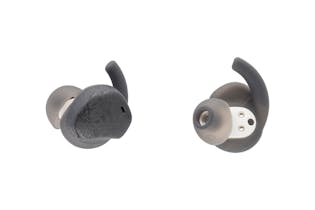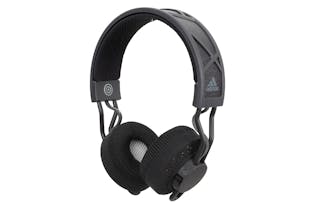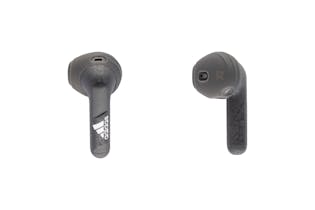How we test headphones
Find out how we test headphones to see which perform best and which are most comfortable and durable.
Hearing is subjective, so we get a panel of five experts varying in age and musical taste to conduct our headphones test.
Lifetime score
Our overall score combines test performance (how well the product works) with predicted reliability (how likely models from the brand are to remain free of faults) and brand satisfaction (how likely owners of the brand are to be satisfied).
Test performance
It’s no good if a product lasts for many years if it doesn’t work well in the first place. A disappointing product will soon become unloved and unwanted. For this reason, our independent lab testing forms an important part of our overall lifetime score.
Our headphones test is based on:
- Sound quality
- Comfort
- Noise cancelling (if any)
- Durability
- Sound leaking.
We get five expert testers to wear each pair of headphones and listen to a range of music genres and a podcast.
Sound quality: We assess high and low frequencies, percussion, and overall sound balance. We also note any unwanted noise and distortion. We record any differences between wireless and wired use for models with both options.
Comfort: We check how well the headphones can be adjusted for a good fit, how well they stay in place during walking, running and jumping activities, and whether there’s any restriction in the wearer’s movement.
After 30 minutes of listening, we assess how loose or tight the headphones feel, and whether they’ve become uncomfortably warm or heavy.
Noise cancelling: For models with active noise cancelling (ANC), we assess how well ambient noises are cancelled out. This includes people talking, continuous noise such as air conditioning and motorway traffic, and intermittent noises such as passing cars.
Durability: We assess the build quality of earpieces, padding, any hinges, buttons, cables and charging ports. We also drop the headphones ten times from a height of 1.8m onto a stone floor and check for any physical damage and loss in performance.
Sound leaking: We use a calibrated reference ear (a device with an acoustic input impedance resembling that of an average human ear) to accurately measure how much sound leaks out from the headphones while in use. Our expert listening panel also makes an assessment, listening for any loud or irritating noises. The sound leaking score is separate from the overall score.
Predicted reliability
It’s reasonable to expect a new set of headphones to remain fault-free for a good amount of time. Our predicted reliability won't tell you whether yours will stop working tomorrow, but it does show which brands make models that are less likely to fail early.
Brand satisfaction
Satisfaction is important – no product should be a source of buyer regret. Headphones with satisfied owners are more likely to be taken care of and therefore last longer.
Survey data
In our reliability and satisfaction surveys, consumers tell us about faults that have left a product they own unusable or mean they’ve had to change how they use it. We also ask them how satisfied they are with the product. We use their data to produce our predicted reliability and brand satisfaction scores.
We use a statistical test to rate the relative performance of each brand. Compared to data we have for all products of the same type in the survey, we rate each brand with highest, high, average, low or lowest for reliability and satisfaction, respectively. You can compare the rating of different brands for the same product type (for example, the reliability rating of Apple and Sony headphones), but you can’t compare the results for different product types (for example, satisfaction of Samsung headphones and Bose speakers).
We analyse brands that get at least 30 responses in our survey. That means there are some brands we can’t analyse because we don’t have enough data. For those brands, we assume they have average reliability and satisfaction.
Our data is based on 3,111 responses from owners of headphones in our 2025 survey.
We've tested 212 pairs of headphones.
Find the right ones for you.
Adidas

Adidas

